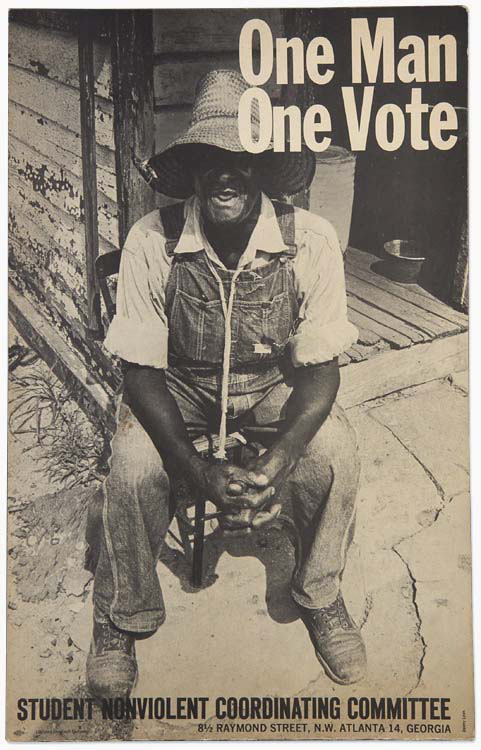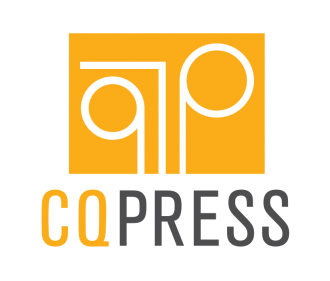Who can vote today?
Ostensibly today any US Citizen 18 years of age or older can cast a ballot in a federal election. Realistically, there are many exceptions to this generalized principle, including some "legitimate" exceptions according to the federal government. Congress has enacted legislation to try and curb illegal voter suppression tactics. The Supreme Court has occasionally ruled to protect marginalized groups from targeted suppression. Still, there are many quasi-legal restrictions adopted in states to limit voter access today. While some voter suppression tactics are being challenged in the courts, many features of our voting system inherently discriminate against racial minorities, non-English speakers, economically precarious people, and incarcerated individuals among many others.
Brennan Center for Justice Resources
The Brennan Center for Justice is a "non-partisan law and policy institute" hosting news updates and more regarding voter suppression in the US.
-
Library: Voter SuppressionThe Brennan Center Library includes "reports, solutions, expert briefs, and resources."
-
State Voting Bills Tracker 2021Lists both restrictive and permissive legislation relating to voting rights by state.
Is "Voter Fraud" a substantial issue?
-
Voting by mail and absentee votingfrom MIT Election Lab and Science Data, this website describes the history of voting by mail from the Civil War to the present in the United States.
Geographic Exclusions: Territories and the District of Columbia
-
District of Columbia Statehood and Voting Representationfrom Congressional Research Service. Authored by Joseph V. Jaroscak.
-
District of Columbia Voting Representation Proposals in the 117th Congressfrom Congressional Research Service. Authored by Joseph V. Jaroscak.
-
Laboratory of Democracy: How the District of Columbia Is Using the Home Rule Act to Achieve Elements of StatehoodCitation: Walter A. Smith Jr. & Kevin M. Hilgers, Laboratory of Democracy: How the District of Columbia Is Using the Home Rule Act to Achieve Elements of Statehood, 21 UDC/DCSL L. REV. 108 (2019).
-
Statehood Process and Political Status of U.S. Territories: Brief Policy Backgroundfrom Congressional Research Service. Authored by R. Sam Garrett.
Voting Rights and Incarceration
-
A Uniform Approach to Felon Disenfranchisement: Is the Multi-State System an Artifact of Slavery?Citation: Kierra W. Mai, A Uniform Approach to Felon Disenfranchisement: Is the Multi-State System an Artifact of Slavery?,13 IDAHO CRITICAL LEGAL STUD. J. 1 (2019).
-
Timeline of Massachusetts Incarcerated Voting Rightsfrom MassPOWER
-
Felon Voting RightsNational College of State Legislatures (NCSL) breaks down voting restrictions for currently and formerly incarcerated people convicted of a felony by state.
Contemporary Obstructions to Casting a Ballot
As outlined in The State of Voting Rights by Gilda R. Daniels, some current voter suppression tactics include:
- Polling place closures
- Voter ID laws
- Language barriers
- Voter registration
- Voter purges
- Felon disenfranchisement
- Redistricting
Other obstacles related to casting a ballot
- Non-holiday voting (via Pew Research Center)
- single-day voting (via National Conference of State Legislatures)
- Voter intimidation (via the Washington Post)
- Limited absentee ballot drop-off locations (via SCOTUSblog)
- Challenges to mail-in voting (via SCOTUSblog)
- Voter registration deadlines (via the New York Times)
Voter ID Laws
-
Disenfranchisement 2.0: Recent Voter ID Laws and the Implications ThereofCitation: Erin A. Penrod, Disenfranchisement 2.0: Recent Voter ID Laws and the Implications Thereof, 14 U. ST. THOMAS L.J. 207 (2018).
-
Federal Government on Voter ID LawsInformation from the Federal Government on what voters will need to bring to the polls if their state requires a photo id to vote.
-
Protection or Suppression? Reevaluating the Constitutionality of Voter ID Laws in Light of New Empirical EvidenceCitation: Jared D. Michael, Protection or Suppression? Reevaluating the Constitutionality of Voter ID Laws in Light of New Empirical Evidence, 34 NOTRE DAME J.L. ETHICS & PUB. POL'Y
-
Voter Suppression Post-Shelby: Impacts and Issues of Voter Purge and Voter ID LawsCitation: Lydia Hardy, Voter Suppression Post-Shelby: Impacts and Issues of Voter Purge and Voter ID Laws 71 MERCER L. REV. (2019).
-
Voting Rights: Voter ID LawsVisit this Rutgers University research guide, created by Triveni Kuchim for a comprehensive introduction to voter ID laws and more.
Voting for Noncitizens
-
The Franchise of Noncitizens and Undocumented Immigrants: Neither Constitutionally Compelled Nor Constitutionally ForbiddenCitation: Delaney Lurie Beier, The Franchise of Noncitizens and Undocumented Immigrants: Neither Constitutionally Compelled Nor Constitutionally Forbidden, 68 DRAKE L. REV. 633 (2020).
-
Prospects for Democratic Change: Non-Citizen Suffrage in AmericaCitation: Elise Brozovich, Prospects for Democratic Change: Non-Citizen Suffrage in America, 23 HAMLINE J. PUB. L. & POL'Y 403 (2002).
-
Enfranchising Resident ImmigrantsCitation: Justin Cox, Enfranchising Resident Immigrants, 3 J. MIGRATION & REFUGEE ISSUES 79 (2007).
-
Reconceiving Citizenship: Noncitizen Voting in New York City Municipal Elections as a Case Study in Immigrant Integration and Local GovernanceCitation: Lauren Gilbert, Reconceiving Citizenship: Noncitizen Voting in New York City Municipal Elections as a Case Study in Immigrant Integration and Local Governance, 2 J. ON MIGRATION & HUM. SEC. 223 (2014).
Citizenship and Voting: Inextricably Linked?
-
The Citizenship Clause: A Legislative HistoryCitation: Garrett Epps, The Citizenship Clause: A Legislative History, 31 IMMIGR. & NAT'LITY L. REV. 355 (2010).
-
Citizenship, Voting, and Asian American Political EngagementCitation: Ana Henderson, Citizenship, Voting, and Asian American Political Engagement, 3 UC IRVINE L. REV. 1077 (2013).
-
A Critical History of the United States Census and Citizenship QuestionsCitation: Thomas P. Wolf & Brianna Cea, A Critical History of the United States Census and Citizenship Questions, 108 GEO. L.J. ONLINE 1 (2019-2020).
Books
-
Living in Infamy by
Call Number: KF9747 .H65 2014ISBN: 9780199976089Publication Date: 2013-12-18This book discusses the history of felon disenfranchisement in the US. -
America Votes! : challenges to modern election law and voting rights by
Call Number: KF4886 .A86 2020ISBN: 9781641055543Publication Date: 2020-09-01Each edition of America Votes! explores issues of concern and problems that threaten the security and fairness of the American electoral system. There is much that needs to be done across a whole host of issues to restore confidence in the fairness, equity, and security of the voting process in communities across America.
Historic Obstructions to Casting a Ballot
Voter suppression tactics in the United States have been wide ranging and devastating to the democratic project. Strategies to repress enfranchisement in the United States continue to evolve and challenge the understanding that one citizen has one vote. Some key historical voter suppression tactics used historically to disenfranchise Black Americans include:
The Movement to Abolish the Electoral College
-
The Electoral College: Options for Change and 117th Congress Proposalsfrom Congressional Research Service. Authored by Thomas H. Neale.
-
NPV—The National Popular Vote Initiative: Proposing Direct Election of the President Through an Interstate Compactfrom Congressional Research Service. Authored by Thomas H. Neale.





